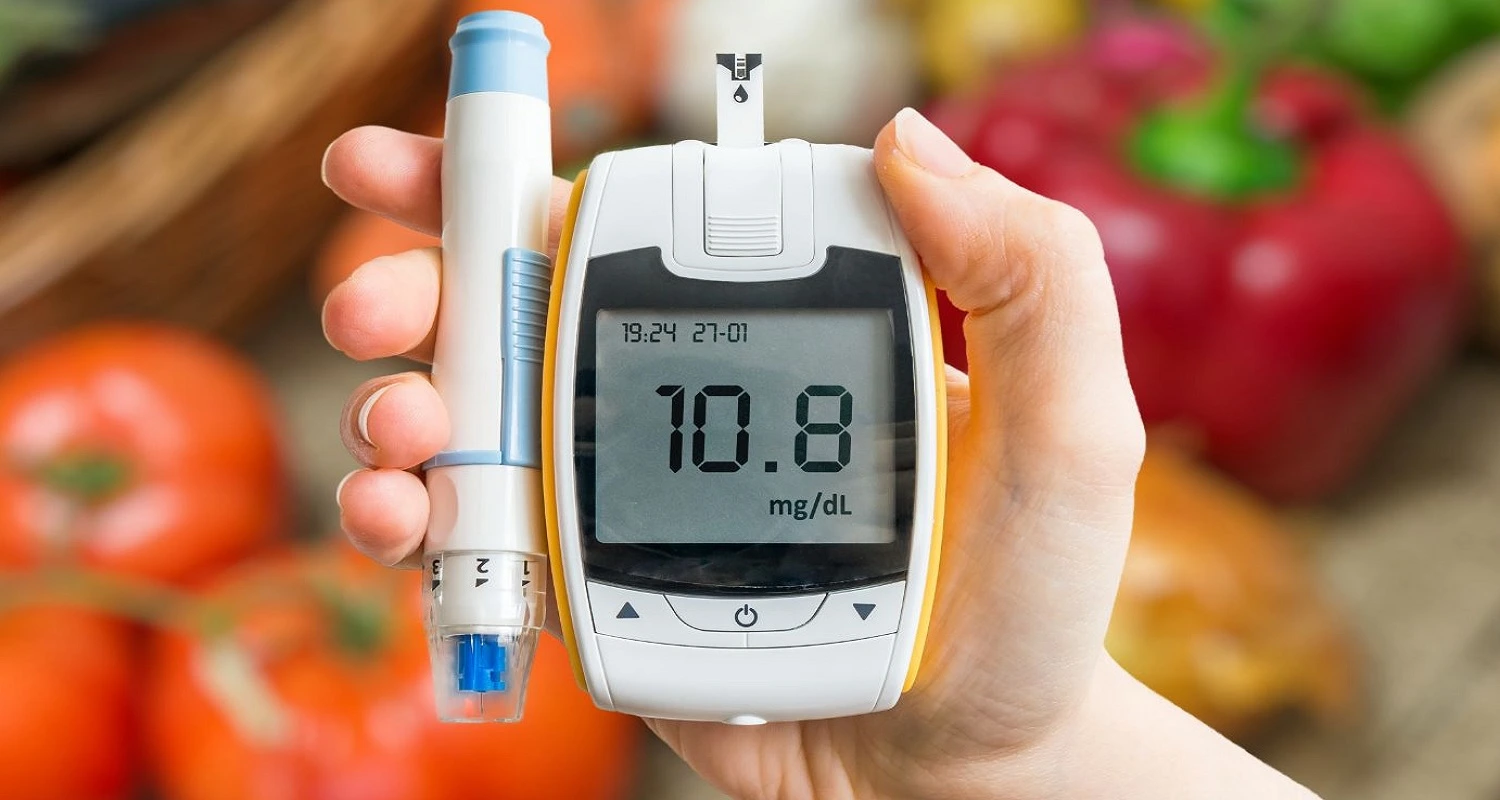Last Updated on: 2nd January 2026, 08:54 am
Do you know the effects of diabetes and metformin to your teeth?
Approximately 62 million people live with diabetes in the Americas, a figure that may be higher as 40% of those who have this disease do not know their diagnosis. This means they also do not know the effects of diabetes and metformin to your teeth which can destroy oral health. This information comes from the Pan American Health Organization (2022).
The World Health Organization also states that over 95% of people with diabetes worldwide have type 2 diabetes, which is usually caused by conditions such as overweight and lack of physical activity and is commonly treated with metformin.
According to the International Diabetes Federation’s Diabetes Atlas, the number of people aged 20 to 79 with diabetes worldwide increased from 151 million in 2000 to 537 million in 2021.
These figures show that this disease affects a large part of the population, with collateral effects on people’s overall health. In this article, we will explain the effects of diabetes and metformin to your teeth.
What is Diabetes?
Diabetes is a chronic disease that occurs when glucose (or sugar) levels in the blood are high and can eventually lead to serious damage to the heart, eyes, blood vessels, kidneys, and nerves.
When the body metabolizes the food we eat, it mostly turns it into glucose (sugar), which is released into the bloodstream. The pancreas, which regulates this process, produces insulin to transport the glucose inside the cells.
If the body does not produce enough insulin or is not able to easily couple it with glucose for transport, there is too much free sugar in the bloodstream, which can lead to diabetes if not controlled in time.
Diabetes can occur in a person at any age, gender, or health condition, and there are several types of diabetes, such as:
Type 1 diabetes
It is also known as juvenile chronic diabetes, occurs when the pancreas does not produce insulin or produces too little. These people are identified as insulin-dependent.
Type 2 diabetes
The most common type is caused by poor eating habits, which leads to resistance (not accepting) to insulin or not producing enough to transport the amount of metabolized sugar.
Since diabetes is a health condition that has no cure and, when advanced, has no reversal, it must be controlled with specific medications prescribed by the treating physician to avoid much more serious health problems.
Effects of Diabetes and Metformin to Your Teeth
People with diabetes are more vulnerable to oral health problems such as gingivitis and periodontitis, which can lead to tooth loss. They are more susceptible to infections and have a lower capacity to respond to bacteria, which are part of the effects of diabetes and metformin to your teeth.
1. Gum disease can alter blood sugar levels, reflected in the increase of glucose levels in saliva, which promotes the growth of bacterial plaque.
2. If the bacterial plaque is not removed, it accumulates and hardens at the gum line, making brushing and oral hygiene difficult. The gums become inflamed, reddened, and easily bleed.
3. These are the first symptoms of gingivitis, a disease that, if not treated in time, will lead to periodontitis, increasing the risk to oral health. In other words, the high glucose level promotes gum disease, a condition that in turn makes blood sugar control more difficult, generating a complex management cycle that delays the healing process. If you have gum disease, you must use a specific mouthwash that can help you. Check some options in the link below.
4. People with diabetes can also experience oral candidiasis, dry mouth, infections, cavities, ulcers (canker sores), loose teeth, changes in taste, and burning mouth syndrome, among others.
What is Metformin Used for?
Metformin (MF) is a medication used to treat type 2 diabetes (diabetes mellitus / the body does not produce or use insulin properly). It is prescribed at the beginning of treatment to reduce high levels of sugar in the blood; although it does not cure diabetes, it facilitates the management of glucose levels in the body.
MF is not a medication indicated for people with type 1 diabetes (insulin-dependent), as they do not produce insulin in the pancreas and blood glucose is controlled with hormone injections.
Metformin can cause some side effects when first taken, which disappear over time. The most common effects are acidity, stomach pain, nausea or vomiting, diarrhea, weight loss, headache, dry mouth, and an unpleasant metallic taste in the mouth.
• When used for prolonged periods, it can cause vitamin B12 deficiency.
• Another side effect of this medication is lactic acidosis, which is the accumulation of MF in the body that causes a pH imbalance in the body. This requires urgent medical attention.
• It should be noted that corticosteroids can interrupt its effect, increasing blood glucose.
• Excessive alcohol consumption, malnutrition, weakened physical condition, anemia, and liver disease are some health conditions that affect the effectiveness of this medication.
• If you are going to receive treatment with metformin, it is important to inform your treating physician about what other medications you are taking, as some drugs generate adverse effects when combined with MF.
• When receiving dental treatment that includes tetracycline and this antibiotic is combined with metformin, there is a greater risk of developing metabolic acidosis.
This information is essential to take the most accurate therapeutic route. If you have ever had an allergic reaction to this medication or any other, inform your treating physician. The effects of diabetes and metformin to your teeth could be a sign of alarm for you!
Tips for Management and Prevention
These are some recommendations for people diagnosed with diabetes that will facilitate having stable oral health and preventing the effects of diabetes and metformin on your teeth:
1. Avoid smoking. Tobacco use affects gum disease.
2. Limit the consumption of foods and beverages with high sugar content.
3. Periodically check the mouth for redness, inflammation, or bleeding in the gums, loose teeth, bad breath, or if changes in bite are perceived.
4. If symptoms of problems with teeth or gums are evident, it is necessary to consult the dentist as soon as possible.
6. If dental prostheses are used and do not fit well or if there is pain in the gums, inform the dentist.
7. Request that the doctor who is treating diabetes shares the results of exams and analyses performed with the dentist. It is relevant information for oral health care.
8. Use a soft-bristled toothbrush. Check out some great options here!
9. Use toothpaste that has fluoride and clean the spaces with dental floss.
10. Visit the dentist at least once a year.
If you have a diagnosis of diabetes, periodic control of blood glucose levels is crucial for preventing and controlling oral diseases. Monitoring blood sugar levels also facilitates accurate dental treatment that is appropriate for the person’s health condition.
However, do not forget to look be aware of the effects of diabetes and metformin to your teeth.
Frequently Asked Questions
What are the dental effects of diabetes?
Periodontal disease, commonly referred to as gum disease, is the most prevalent and severe dental issue associated with diabetes. If left untreated, this condition can progress from gum inflammation to tooth loss. Elevated blood glucose levels heighten the likelihood that gum disease will escalate from a mild to a severe state.
Do you get free dental care if you are diabetic?
Although diabetes is known to raise the risk of dental health problems, having diabetes does not automatically make you eligible for free dental treatment. However, there are other conditions that may qualify you for NHS dental care assistance, such as being under the age of 18.
How does diabetes impact dental extraction?
The main risk for diabetic patients with high blood sugar levels after a tooth extraction is not during the procedure itself. The concern arises during the healing process. Healing may be delayed, the socket may become dry, and there is a potential for developing osteomyelitis.
Can diabetes cause your teeth to break?
Diabetes does not directly lead to chipped, cracked, or fractured teeth. However, it can significantly affect your oral health, increasing the likelihood of cavities that can grow large enough to cause teeth to break. If you have diabetes, it is crucial to maintain good oral hygiene and visit your dentist regularly
Share:
References
1. Brigham and Women’s Hospital. (January 12, 2020). Diabetes and gum or periodontal disease – Adult Health Library. https://healthlibrary.brighamandwomens.org/spanish/diseasesconditions/adult/Diabetes/85,P03468
2. Gonzalez Ingrid, Arroyo Dayana. (December 2019). Diabetes mellitus, manifestations in oral cavity. A review of the topic – Revista Médica de Risaralda Vol. 25 No. 2 / https://revistas.utp.edu.co/index.php/revistamedica/article/view/16121
3. González C, Manso Platero F. J. and López Alba A. J. (October 14, 2014). Oral antidiabetics and dentistry – Advances in Odontostomatology. https://scielo.isciii.es/scielo.php?script=sci_arttext&pid=S0213-12852014000500005
4.. Mayo Clinic (n. f) Metformin (Oral Route) Side Effects / https://www.mayoclinic.org/drugs-supplements/metformin-oral-route/side-effects/drg-20067074
5. National Institute of Dental and Craniofacial Research. (February 2023). Diabetes & Oral Health. https://www.nidcr.nih.gov/health-info/diabetes
6. National Institute of Dental and Craniofacial Research. (August 2012). Diabetes, Gum Disease, & Other Dental Problems. https://www.niddk.nih.gov/health-information/diabetes/overview/preventing-problems/gum-disease-dental-problems
7. Saudi Phram J. (July 2018). Efficacy of metformin in the management of periodontitis: A systematic review and meta-analysis. https://www.ncbi.nlm.nih.gov/pmc/articles/PMC6035318/
8. University of Illinois – Chicago. (November 16, 2021). Metformin: Common and serious side effects. https://www.healthline.com/health/es/metformina-efectos-secundarios
9. Yetman Daniel (February 17, 2023). Side Effects of Metformin: What You Should Know / https://www.healthline.com/health/diabetes/metformin-side-effects
10. National Institute of Diabetes and Digestive and Kidney Diseases / NIDDK. (Nov, 2016). What is Diabetes?. https://www.niddk.nih.gov/health-information/diabetes/overview/what-is-diabetes
-
Nayibe Cubillos M. [Author]
Pharmaceutical Chemestry |Pharmaceutical Process Management | Pharmaceutical Care | Pharmaceutical Services Audit | Pharmaceutical Services Process Consulting | Content Project Manager | SEO Knowledge | Content Writer | Leadership | Scrum Master
View all posts
A healthcare writer with a solid background in pharmaceutical chemistry and a thorough understanding of Colombian regulatory processes and comprehensive sector management, she has significant experience coordinating and leading multidisciplina...


















